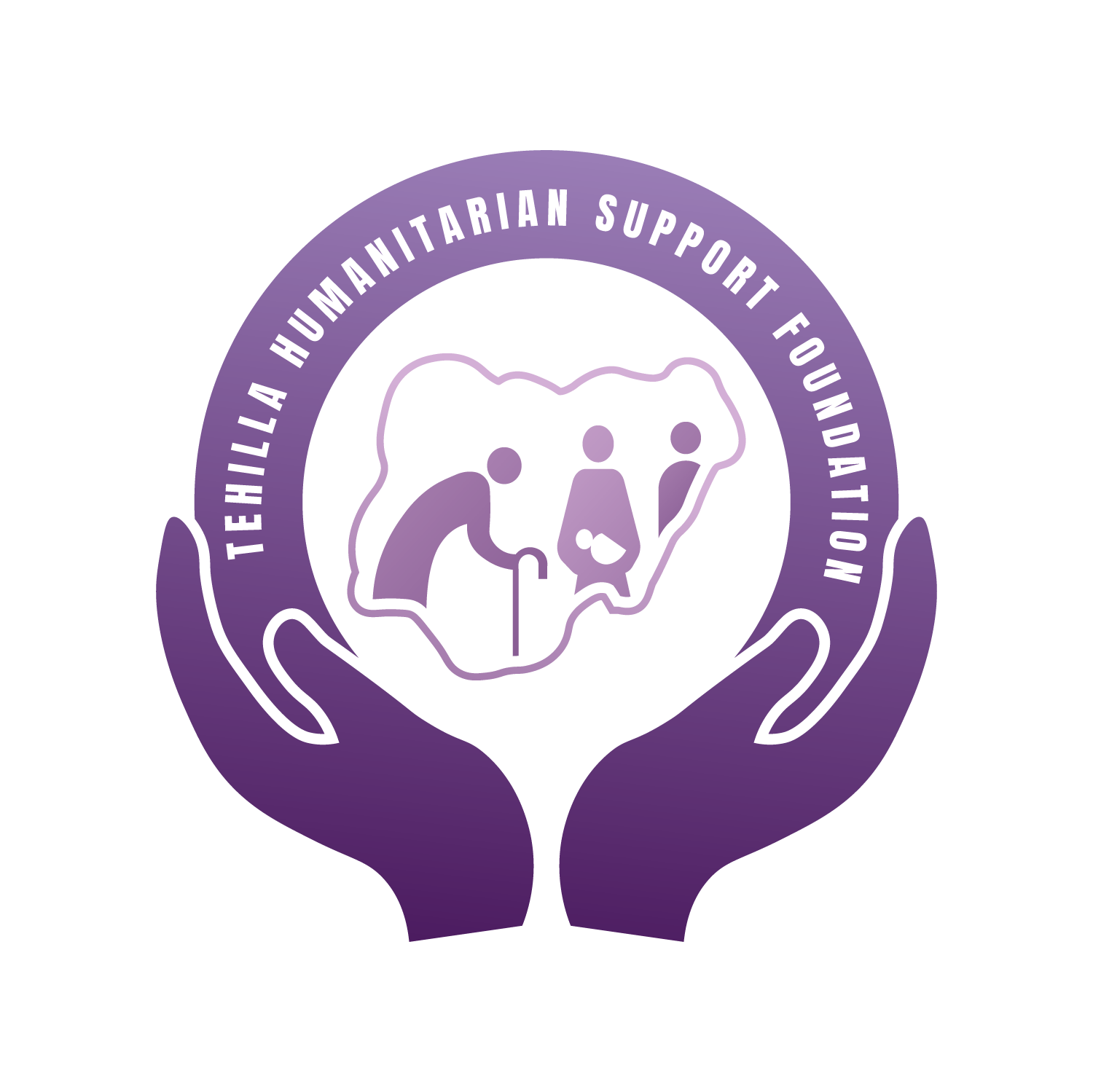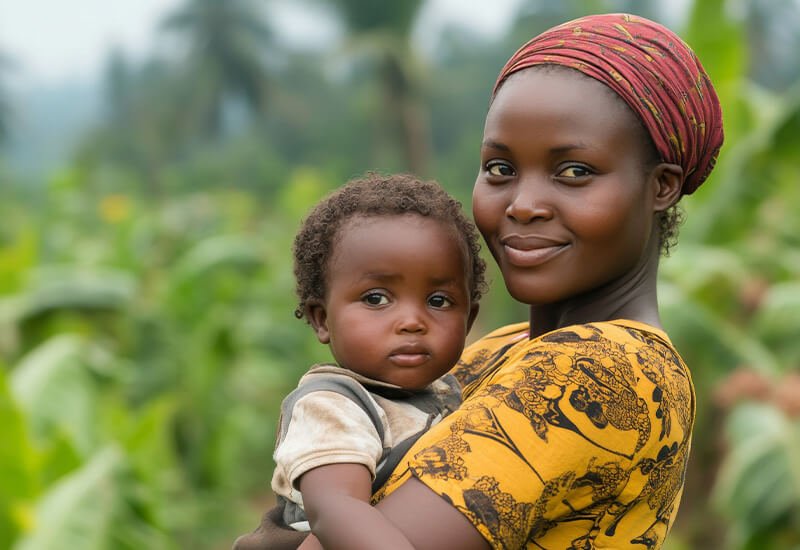Across many parts of the world, and especially in Nigeria, widows often face overwhelming challenges after the loss of a spouse. Beyond the deep emotional pain of grief, many are confronted with financial hardship, social stigma, and even exclusion from their communities. According to UN Women, millions of widows worldwide experience poverty and injustice, with limited access to education, healthcare, and opportunities for economic independence.
Yet, in the midst of these hardships, widows demonstrate extraordinary resilience. Their ability to adapt, rebuild, and persevere is a testament to the strength of the human spirit. Still, resilience alone is not enough; widows need support systems, empowerment opportunities, and communities that uplift them rather than push them aside.
This article explores the realities widows face, the importance of empowering them, and how initiatives like those at Tehilla Humanitarian Support Foundation are helping women rebuild their lives with dignity and hope.
The Realities Widows Face
For many women, the death of a spouse not only brings emotional grief but also a dramatic shift in their social and economic realities. In Nigeria and across the world, widows often encounter unique challenges that make rebuilding their lives an uphill battle.
Economic Struggles
The loss of a breadwinner can plunge families into poverty almost overnight. Many widows face barriers to employment, lack access to financial resources, or are denied inheritance rights. According to the World Bank, financial exclusion disproportionately affects widowed women, making it difficult for them to achieve stability.
Social Stigma and Discrimination
In some cultures, widowhood is accompanied by harmful traditions or social exclusion. Widows may be blamed for their husband’s death, stripped of their property, or forced into degrading practices. These discriminatory norms isolate them further and hinder their ability to thrive.
Emotional and Psychological Trauma
Beyond material struggles, widows often carry deep emotional scars. The loss of a partner can lead to loneliness, depression, and anxiety, especially when combined with societal rejection. Without adequate support, these wounds can remain unhealed for years.
Vulnerability to Exploitation and Marginalization
Isolated and economically disadvantaged, widows are more vulnerable to exploitation, abuse, and neglect. From being taken advantage of in financial matters to facing harassment, the absence of protective systems leaves them exposed to further suffering.
These realities underline the urgent need for programs that do more than offer temporary relief; they must empower widows to stand on their own and restore their sense of dignity.

The Power of Empowerment
Empowerment is the bridge that helps widows move from survival to rebuilding their lives with dignity. When widows are given access to the right opportunities and support systems, they can transform not only their own futures but also the lives of their children and communities.
Access to Education and Vocational Training
Skills and knowledge open doors. Through literacy programs, vocational training, and workshops, widows can acquire new abilities that make them employable or help them start small businesses. Education equips them to regain independence and chart a new path forward.
Financial Independence
With access to microloans, entrepreneurship opportunities, and financial literacy training, widows can build sustainable livelihoods. Empowering them economically reduces dependence on others and breaks cycles of poverty. According to UNDP, women’s economic empowerment is one of the strongest drivers of inclusive growth [UNDP].
Emotional Support and Community Networks
Healing is not only material; it is emotional. Support groups and community networks give widows a safe space to share experiences, find encouragement, and rebuild their confidence. Knowing they are not alone helps restore a sense of belonging.
Restoring Dignity and Confidence
True empowerment restores dignity. When widows are given opportunities to stand on their own, they regain confidence and the ability to make decisions for their lives and families. This transformation enables them to step out of the shadows of stigma and into lives of purpose.
Empowerment is not charity; it is the key to unlocking resilience and giving widows the tools they need to thrive.
How Tehilla Foundation Supports Widows
At Tehilla Humanitarian Support Foundation, we recognize that widows are not defined by loss but by their resilience and potential. That is why our programs are designed to provide both practical tools and emotional support, helping women rebuild their lives with dignity and strength.
Vocational Training and Skills Development
We run initiatives that equip widows with marketable skills, ranging from tailoring and crafts to digital literacy and modern trades, empowering them to earn a sustainable income and regain independence.
Financial Literacy and Small Business Opportunities
Through workshops, mentorship, and access to small business opportunities, we help widows understand financial management and take bold steps toward entrepreneurship. These programs foster economic independence and break cycles of dependency.
Support Groups and Counseling
Healing is as much emotional as it is financial. We provide safe spaces where widows can share their experiences, receive counseling, and draw strength from a supportive community. These networks nurture confidence and resilience.
Community Partnerships for Inclusion
We actively partner with local leaders, organizations, and communities to challenge stigma and promote inclusion. By shifting mindsets and encouraging compassion, we create environments where widows are respected and supported as valued members of society.
Through these efforts, the Tehilla Foundation is committed to restoring dignity, rebuilding lives, and ensuring widows are empowered to thrive again.
The Wider Impact on Society
When widows are empowered, the benefits extend far beyond the individual. An empowered widow uplifts not only herself but also her children, family, and community. By providing stability and care, she contributes to raising stronger families and shaping healthier societies.
Breaking Cycles of Poverty
Economic empowerment ensures widows can provide for their families without dependence on others. This breaks cycles of poverty and creates generational change. Children of empowered widows are more likely to stay in school, achieve higher education, and grow into self-reliant adults.
Role Models of Resilience and Leadership
Widows who overcome adversity and rebuild their lives become powerful examples of strength. Their resilience inspires others facing hardship, and their leadership within communities fosters greater inclusivity and compassion. According to UN Women, investing in widows has a multiplying effect, strengthening both social and economic development [UN Women].
In empowering widows, we do more than restore individual dignity; we build communities that are more compassionate, more resilient, and better prepared for the future.
Call to Action
At Tehilla Humanitarian Support Foundation, we believe every widow deserves the chance to rebuild her life with dignity, strength, and hope. But we cannot do this alone. You can make a difference by partnering with us, whether through donations, volunteering your time and skills, or advocating for widows’ rights and inclusion in your community.
Together, we can help widows rise above hardship and step into brighter futures. Join us today in restoring hope and empowering women to thrive.


0 Comments